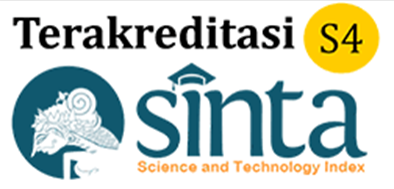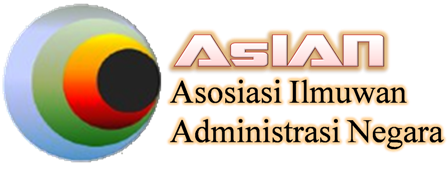Inovasi Pendidikan dalam Proses Pembelajaran di SMAN 1 Kota Kupang Pasca Covid-19
Abstract
This study aims to describe various educational innovations in the learning process at SMAN 1 Kupang in the post-Covid-19 period and the factors that influence the process of innovation. This study uses qualitative methods with the type of case study research, with interview techniques. This research was sourced from 7 informants who were directly involved in the process of educational innovation in the learning process at SMAN 1 Kota Kupang. This study found that digital learning innovations had been carried out by schools before the Covid-19 period took place. This innovation was then developed by the school principal and teachers when Covid-19 occurred and continued after post-Covid-19. This is following the aim of SMAN 1 Kota Kupang to become a technology-based school and a driving school in the City of Kupang.
References
Abdul Wahab, Solichin. 2005. Analisis Kebijakan: dari Formulasi ke Implementasi Kebijakan Negara. PT. Bumi Aksara. Jakarta.
Aditia, S. (2020). Inovasi Pembelajaran Berbasis Aplikasi Mobile Pada Masa Pandemi Covid-19. Inovasi Pembelajaran Berbasis Aplikasi Mobile Pada Masa Pandemi Covid-19, 2(2).
Arifin, M. F. (2018). Model kerjasama Tripusat Pendidikan dalam Pendidikan Karakter Siswa. Muallimuna: Jurnal Madrasah Ibtidaiyah, 3(1), 78-86.
Cinar, E., Trott, P., & Simms, C. (2019). A systematic review of barriers to public sector innovation process. Public Management Review, 21(2), 264–290. https://doi.org/10.1080/14719037.2018.1473477
Creswell, J. W. (2009). Research Design: Qualitative, Quantitative, and Mixed Methods Approaches. In SAGE Publications. https://doi.org/10.2307/1523157
De Vries, H., Bekkers, V., & Tummers, L. (2016). Innovation in the public sector: A systematic review and future research agenda. Public Administration, 94(1), 146– 166. https://doi.org/10.1111/padm.12209
Djalante, R., Lassa, J., Setiamarga, D., Sudjatma, A., Indrawan, M., Haryanto, B., Mahfud, C., Sinapoy, M. S., Djalante, S., Rafliana, I., Gunawan, L. A., Surtiari, G.
A. K., & Warsilah, H. (2020). Review and analysis of current responses to COVID- 19 in Indonesia: Period of January to March 2020. Progress in Disaster Science, 6. https://doi.org/10.1016/j.pdisas.2020.100091
Dwijayanti, R., Rachma, A. N., & Ishartono, N. (2022). Kesiapan Siswa dalam Pembelajaran Jarak Jauh pada Masa Pandemi Covid-19. Buletin Pengembangan Perangkat Pembelajaran, 3(2). https://doi.org/10.23917/bppp.v4i2.19416
Elis Ratna Wulan, E., & Rusdiana, A. (2015). Evaluasi pembelajaran.
Fauzi, A. (2020). Implementasi Pembatasan Sosial Berskala Besar, Sebuah Kebijakan Publik Dalam Penanganan Pandemi Covid-19. Jurnal Ilmu Administrasi Negara, 16(1).
Fusch, P. I., & Ness, L. R. (2015). Are We There Yet? Data Saturation in Qualitative Research. In The Qualitative Report (Vol. 20, Issue 9). http://www.nova.edu/ssss/QR/QR20/9/fusch1.pdf
Giordano, V., Belangero, W., Godoy-Santos, A. L., Pires, R. E., Xicará, J. A., & Labronici, P. (2021). The hidden impact of rapid spread of the COVID-19 pandemic in professional, financial, and psychosocial health of Latin American orthopedic trauma surgeons. Injury, 52(4). https://doi.org/10.1016/j.injury.2021.03.022
Hennink, M. M., Kaiser, B. N., & Marconi, V. C. (2017). Code Saturation Versus Meaning Saturation: How Many Interviews Are Enough? In Qualitative Health Research (Vol. 27, Issue 4). https://doi.org/10.1177/1049732316665344
Hollweck, T. (2016). Robert K. Yin. (2014). Case Study Research Design and Methods (5th ed.). Thousand Oaks, CA: Sage. 282 pages. The Canadian Journal of Program Evaluation. https://doi.org/10.3138/cjpe.30.1.108
Julaiha, S. (2019). Konsep Kepemimpinan Kepala Sekolah. Tarbiyah Wa Ta'lim: Jurnal Penelitian Pendidikan dan Pembelajaran, 6(3), 179-190.
Kahfi, A. (2020). Tantangan dan Harapan Pembelajaran Jarak Jauh di Masa Pandemi Covid 19. Jurnal Dirasah, Vol.03 No.(2).
Kennedy, S. J., Tobing, P. J., Toruan, S. L., Tampubolon, R. L., & Nomleni, A. (2019). Isu Strategis Kesenjangan Pendidikan Di Provinsi Nusa Tenggara Timur. Prosiding Seminar Nasional Pendidikan FKIP, 2(1).
Kutieshat, R., & Farmanesh, P. (2022). The Impact of New Human Resource Management Practices on Innovation Performance during the COVID 19 Crisis: A New Perception on Enhancing the Educational Sector. Sustainability (Switzerland), 14(5). https://doi.org/10.3390/su14052872
Kristiawan, M., Suryanti, I., Muntazir, M., Ribuwati, A., & AJ, A. (2018). Inovasi pendidikan. Jawa Timur: Wade Group National Publishing, 1-7.
Parid, M., & Alif, A. L. S. (2020). Pengelolaan sarana dan prasarana pendidikan. Tafhim Al-'Ilmi, 11(2), 266-275.
Patilima, S. (2022, January). Sekolah Penggerak sebagai upaya peningkatan kualitas pendidikan. In Prosiding Seminar Nasional Pendidikan Dasar.
Permenkes. (2020). pedoman pembatasan sosial berskala besar. Parallax.
Pfefferbaum, B., & North, C. S. (2020). Mental Health and the Covid-19 Pandemic. New England Journal of Medicine, 383(6). https://doi.org/10.1056/nejmp2008017
Pradana, I. P. Y. B., Kumorotomo, W., & Susanto, E. (2023). The institutionalization of public innovation: Evidence from Indonesia. Administration & Society, 1–26. https://doi.org/DOI: 10.1177/00953997231151438
Pradana, I. P. Y. B., Susanto, E., & Kumorotomo, W. (2022a). Analyzing the critical factors for innovation sustainability in the public sector: evidence from Indonesia. International Journal of Public Sector Management, 35(7), 733–748. https://doi.org/10.1108/IJPSM-02-2022-0044
Pradana, I. P. Y. B., Susanto, E., & Kumorotomo, W. (2022b). Bibliometric Analysis of Public Sector Innovation. Jurnal Ilmu Sosial Dan Ilmu Politik, 25(3), 297–315. https://doi.org/https://doi.org/10.22146/jsp.69862
Sugiyono. (2017). Sugiyono, Metode Penelitian. Penelitian.
Sugiyono. (2019). Metode Penelitian Kualitatif dan Kuantutatif. In Alfabeta.
Swabudanta, I. W. O. (2019). Penerapan Model Pembelajaran Kooperatif Tipe STAD (Student Teams Achievement Divisions) untuk Meningkatkan Prestasi Belajar Menulis Bahasa Inggris. Jurnal Pedagogi Dan Pembelajaran, 2(3). https://doi.org/10.23887/jp2.v2i3.19281
Syarif, I. (2013). Pengaruh model blended learning terhadap motivasi dan prestasi belajar siswa SMK. Jurnal Pendidikan Vokasi, 2(2). https://doi.org/10.21831/jpv.v2i2.1034
Copyright (c) 2023 Jurnal Manajemen dan Ilmu Administrasi Publik (JMIAP)

This work is licensed under a Creative Commons Attribution 4.0 International License.













